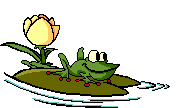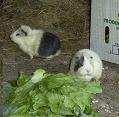 |
Bungala Ridge Permaculture Gardens REDUCE ... REUSE ... RECYCLE ... REPAIR ... RETURN ... REVEGETATE ... REPLENISH |
||||||||
|
|||||||||
|
|
Make Composting Easy with Compost Tea! Years ago we used to build a massive compost heap using materials collected off site - a trailer load of cow or sheep manure, vegetable and fruit waste from the greengrocer, old hay, etc. This made us feel good, but it was back breaking work. A ruptured disk put a stop to this practice and caused us to investigate alternative composting options. Compost is the art of selectively and deliberately breaking down organic matter, at an accelerated rate, using the action of micro-organisms, worms, termites and other small creatures. These harvest nutrients so that they become available for use by the plants in the garden. Although we never seem to make enough compost and need to supplement it with a purchased organic fertiliser, we like compost because it is cheap and easy to produce. Compost improves soil structure. It recycles organic waste, prevents loss of humus and nutrients and encourages the existence of earthworms and other soil borne creatures. Comost also controls pathogens, makes soil minerals available for plant use, supplies fungal spores for mycorrizhal associations and, if well made, kills weed seeds and can neutralise pH imbalance (acidity/alkalinity) in the soil. With all this going for it compost is a garden must! We've used several methods for producing compost, but my favourite is making 'compost tea'. I collect deep rooted or seedy weeds from the garden and place them in a barrel half full of water. This steeps for two weeks or more. The brew is then diluted and watered onto the plants. Occasionally I will make a manure tea, using either chicken, pigeon or guinea pig manure, for a more concentrated blast. This is made in a closed bucket. A shovel of manure usually suffices to make a potent brew, and this is diluted well before use. Throughout the year we dump materials collected off-site, plus scraps and weeds for animal feed, into our large guinea pig/pigeon cage. This is raked up several times a year, and built into a small heap that is watered, covered with black plastic, and allowed to 'cook' in the sun. The animals have mixed and manured the material well, halving our workload. In the past, we've used worm farms to produce a fine-grade compost suitable for using in potting mixes. These were lots of fun for the children and easy to care for. Now that the garden is abundant with plant-life we are never short of pruned clippings we can compost!
|
Hot Links!
This site is sponsored by |
|||||||
|
|
|
|
|||||||




